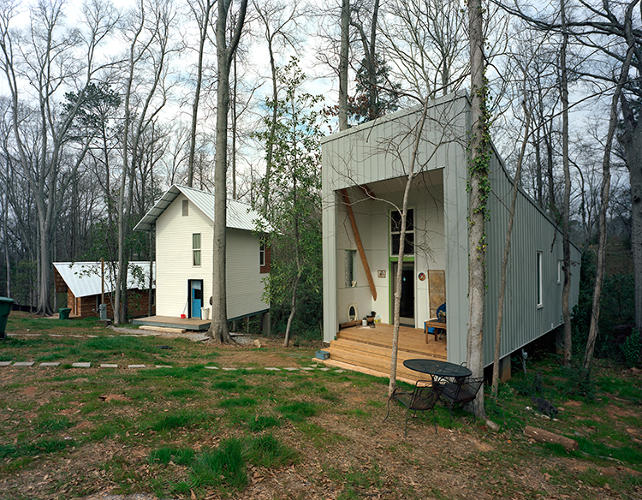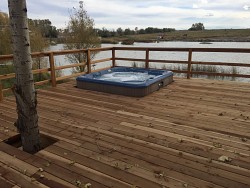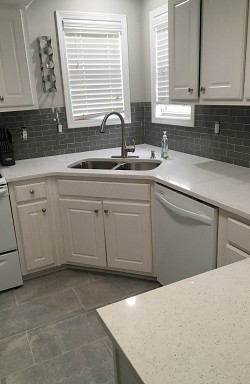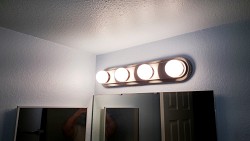20k Project Builds Smart Homes for Under 20k
 Sometimes the definition of "affordable housing" is enough to raise eyebrows, but in Alabama, a state with some extremely poverished regions, a group of architecture students decided to take it seriously with the 20k Program. The program aims to build houses for under $20,000, reflecting the maximum someone living on Social Security could realistically spend on a home. Seniors in the US are particularly vulnerable to poverty, especially if they didn't have opportunities to save and contribute to pension funds before retiring or becoming unable to work, so there's an urgent need for affordable senior housing that avoids the mistakes of prior affordable and public housing developments.
Sometimes the definition of "affordable housing" is enough to raise eyebrows, but in Alabama, a state with some extremely poverished regions, a group of architecture students decided to take it seriously with the 20k Program. The program aims to build houses for under $20,000, reflecting the maximum someone living on Social Security could realistically spend on a home. Seniors in the US are particularly vulnerable to poverty, especially if they didn't have opportunities to save and contribute to pension funds before retiring or becoming unable to work, so there's an urgent need for affordable senior housing that avoids the mistakes of prior affordable and public housing developments.
Cost Efficiency and Universal Design
The students' goal isn't only to build low-cost housing, but also to keep the housing cost-efficient throughout its lifetime, ensuring residents aren't stuck with high energy bills and other maintenance expenses. Thus, the 20k houses need to have smart designs, high efficiency, and features designed to last, all of which add considerable contracting challenges. In addition, since they're aimed at seniors, designers need to consider universal design issues like the fact that the occupant's mobility level may change with time. Thus it's important to make sure the home is fully accessible and easy to adapt for changing needs.
Tornado Safety
In addition, given the area where the homes are being installed, tornado safety is also a concern. It presents a formidable set of challenges, but the team has finally managed to do it, with more than twenty 550-square- foot homes under their belts so far, built at a cost of approximately $20,000 for both labor and materials. Like any smart design team, they're working on refining the design and the process to control costs, add features, and respond to feedback so they can develop the best projects possible.
Financial Challenges
They're also facing some financial challenges. For banks, there's not a strong incentive to underwrite $20,000 homes, because their profit is minimal and the underwriting costs are the same as with much larger loans. Working with credit unions and nonprofit organizations may be the best way to solve this problem, helping customers access funding to help them get into 20k houses, without driving costs up to satisfy the financial demands of bankers. It's a strange position to be in -- the low-cost home that is, in some senses, too cheap.
Real-World Education for Architecture Students
Besides inexpensive housing for communities in need, the 20k PRogram provides critical real-world education for architecture students, who can then take their skills to other communities, expanding access to affordable housing. Building constraints vary by region, and students will need to consider issues like earthquake safety, extreme cold, and hurricanes for locales such as California, Florida, or Maine. Hurricane-safe roofing in Miami, for example, is a must-have. These challenges will help them improve the original design to build stronger, better, more efficient homes, providing low-income people across the US with access to well-designed, attractive, and affordable housing.
Students and the Community
In addition, the program encourages interaction between students and the community. Many college towns struggle with a "town versus gown" problem, as students and local residents may feel slightly estranged from each other. Tensions can develop, with both sides thinking that the other doesn't recognize or respect the challenges they face. Outreach programs like this one create common ground and opportunities for cooperative collaboration that equate to strong community connections and better relations.
Katie Marks writes for Networx.com.
Updated June 28, 2018.
Related Articles
Looking for a Pro? Call us (866) 441-6648

Remodeling Average Costs
Remodeling Contractors Experiences

My Awesome New Deck Built Off My Master Bedroom

Awesome Kitchen Tile Backsplash



